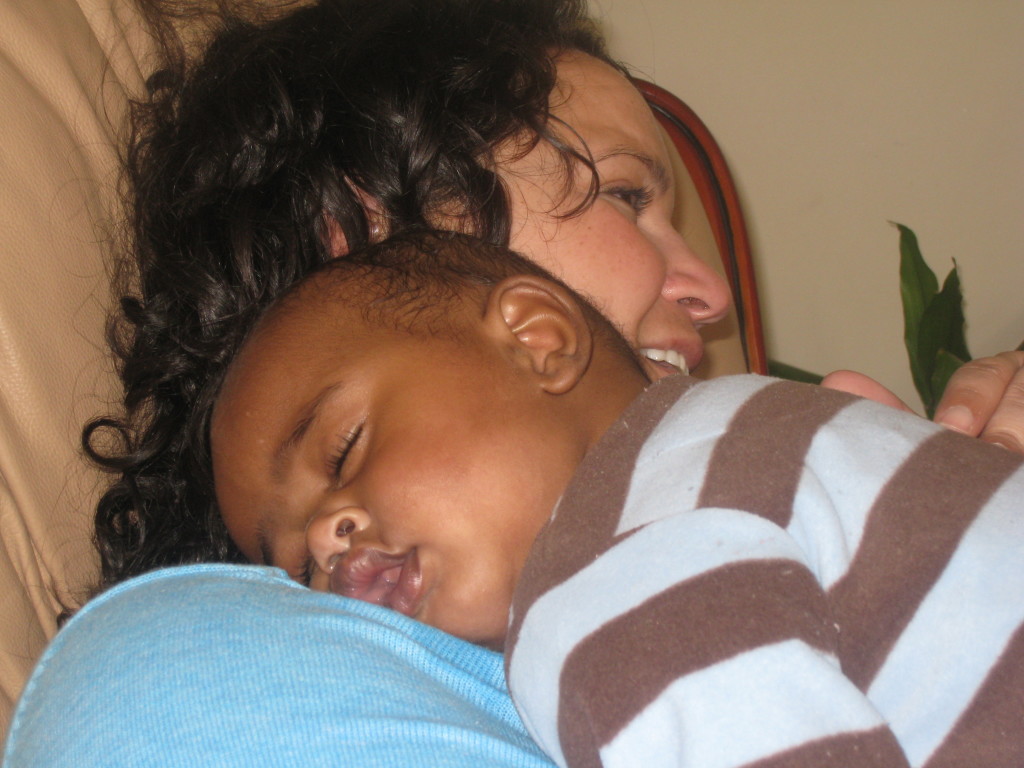A national report on self-esteem reveals that…
- 7 in 10 girls believe they are not good enough or do not measure up in some way, including their looks, performance in school and relationships with friends and family members.
- 62% of all girls feel insecure or not sure of themselves
- 57% of all girls have a mother who criticizes her own looks in front of them.
- 57% of all girls say they don’t always tell their parents certain things about them because they don’t want them to think badly of them.
- The top wish among all girls is for their parents to communicate better with them, which includes more frequent and open conversations about what is happening in their own lives.
These are daunting statistics, but the good news is that there are plenty of things you can do to positively impact your child’s sense of self (and your own).
THROW OUT THE IDEA OF BEING PERFECT AND INSTEAD BE REAL
I know that being a good role model can feel really daunting because it reinforces the ridiculous messages we get about being perfect in every way. But the truth is that being perfect is not what we need to be. Our kids really don’t want us or need us to be perfect, and they most appreciate it when we are real (Happy’s favorite story about me—told to him when I was relating to him that I knew how hard it was to feel frustrated and to figure out a good way to share that frustration without making bad choices in the midst of it- is how I cracked an egg over my sister’s head in front of her high school boyfriend when she was being mean to an elementary-school aged me).**
Our kids want us to say, “this isn’t easy but it’s important and that is how most of the good stuff is in life” and they want us to share with them our journey while gently helping them figure out their walk.
** And just to further prove that I don’t get a lot right the first time, next week’s post will feature one of my many parenting while real and not perfect moments.
SHARE YOUR OWN GOALS AND HOPES AND JOURNEY
Being a good role model is less about lecturing our kids and hovering over them and more about how you move through your own life. Kids want to see us earnestly show them how we are attempting to walk our talk. They like to see that we’re still earnest in our self-discovery and working on our personal growth, that we are always works in progress.
We need to model that we are striving for our own personal improvement rather than striving for perfection in what we do (because shooting for perfection isn’t really about our self-acceptance at all but having others approve of us). When we do this, we gain our own approval and show our children that’s what matters, too.
WATCH YOUR LANGUAGE
How we approach our own lives is a living example to our children. If our kids see us being intentional and self-compassionate, they understand that those traits are valuable to possess. Avoid negative talk about your body or aging. Celebrate your friends’ kindnesses rather than looks. Talk about what is going on in the shows you watch not how people look in them. Children are perceptive and seeing these behaviors helps them place a premium on them.
TAKE CARE OF YOU
So many of us run ourselves ragged but do not want that for our children. With kids learning and valuing what they see, we can send the wrong message to them. If you cannot make it a priority to take care of yourself for you, make it a priority to do so that your kids see you do it. Soon, you will buy into the importance of it, too, because you will see how it benefits everyone- not just you. Be physically active. Eat foods that nourish you. Pursue your own interests. Take time for yourself. Try new things. All of these practices are powerful examples for your children.
CONNECT
It is important to have an open dialogue with our kids and that’s on us. It is not enough to say, “my kids know they can talk to me.” You have to talk to them. Put in the time with more casual conversations. Watch shows together so you can talk about issues that way. Share your own experiences. Start a journal between the two of you where you write back and forth to each other. Have a jar of questions on the dining room table that you draw from each night for conversation. Be deliberately engaged.
But our kids can benefit from even more connection. Help them build connected relationships with other trusted adults who can help mentor and support them. Kids cannot be loved and appreciated by too many adults so build a network around them so they always have people to support them.
Want more insight on how to model self-compassion and build a positive relationship with your daughter? I am hosting Beautiful You(th) on October 11th, a powerful and fun workshop for mothers and their high-school aged daughters. Learn more.



